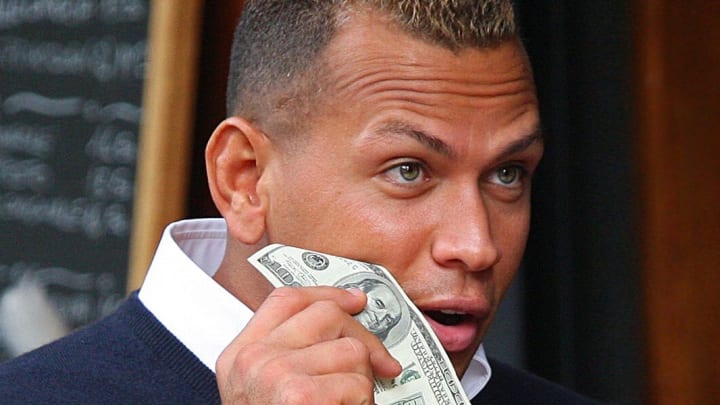"Screwball" Documents the Absurdity of A-Rod's Role in Biogenesis Through the Backdrop of Miami

Screwball understands that the story it’s telling is a farce. (It’s not called “Screwball” for nothing.) The Biogenesis steroid scandal was one of the biggest in baseball history and took down one of the game’s greatest stars in Alex Rodriguez, but it reads like an Elmore Leonard novel populated exclusively with morons, or like a Coen brothers movie rewritten by the Farrelly brothers with a dash of Harmony Korine. So smartly, the documentary treats the sordid affair like the comedy it is—a saga with huge consequences, and yet one that started over a measly $4,000 debt. The result is an exhaustive yet fun retelling of the strange, stupid peak of MLB’s PED frenzy, and one well handled by Billy Corben, who produced and directed alongside his rakontur partner Alfred Spellman and who is no stranger to shining a light on Miami’s shadiest nonsense. (The film is out Friday in theatres and will be released on VOD on April 5.)
Screwball’s star is Anthony Bosch, the man who ran Biogenesis. A quintessential south Florida hustler, he’s an unlicensed doctor—though he goes to great pains in the film to differentiate that from a “fake doctor”—who grew up wanting to play baseball but had to settle for dealing drugs to its stars. His first big-name client was Manny Ramirez in 2007, and after Bosch helped him regain his MVP form through a regimen of testosterone and PEDs, he surfaced as a premier doping option for players—most notably Rodriguez.
The connection between Bosch and Rodriguez yields some of Screwball’s best material. Bosch recounts that, in their first meeting, A-Rod—despite Ramirez having been busted and suspended in 2009 (in true Manny fashion, he mistakenly took a dose on the wrong day)—immediately tells him, “I want what Manny was taking.” His connection with Rodriguez was his most profitable, and like a low-rent Scarface, Bosch rode that success to financial windfall. He also got a window into the high-octane weirdness that is A-Rod, like the Yankees third baseman’s all-white Manhattan apartment (including the floors), or the time he drew the three-time MVP’s blood in the bathroom of a Miami nightclub, only to lose the vial while partying that night.
But for every rise, there must be a fall. For Bosch, things quickly unraveled in 2012 after a disgruntled employee and self-described tanning enthusiast (because this does take place in Florida, after all) stole his massive client list and gave it to the Miami New Times. (Full disclosure: I worked at the New Times in 2012 and with Tim Elfrink, the reporter who wrote the Biogenesis feature, though I wasn’t involved with that story.) From there, Screwball catalogues how an array of small-time crooks out to profit off of Bosch’s blunder collided with MLB’s desperate attempts to bust Rodriguez by any means necessary.
Amazingly, amid all the con men and idiots, it’s MLB that comes off the worst. Screwball argues that the embarrassment and hysteria of the steroid era led the league—which didn’t participate in the documentary—to go particularly hard after Rodriguez and other PED cheats. Yet MLB acts with no ethics, if not criminally: At one point, its investigators buy Bosch’s stolen files from a convicted felon with $100,000 in cash. The film’s biggest laugh comes courtesy of MLB commissioner Rob Manfred, who in an excerpt from a 2013 60 Minutes interview calls claims of MLB paying Bosch $5 million for his testimony against Rodriguez “absolutely untrue.” Cut to Bosch pulling out and reading from a huge stack of documents that show how the league spent millions on his legal fees.
Through it all, Screwball leans into the silliness; as a running gag, the reenactments use child actors made up to look like adults. (My favorite is the version of Manfred, front-tooth gap and all.) The film sags in the middle under the weight of the conspirators’ convoluted plans, and in the end, it’s as much if not more a story about a wildly stupid south Florida crime and its participants than it is about baseball or steroids. Rodriguez in particular disappears for a large chunk of the movie, though when he reappears as the story dives into his prosecution and suspension, you get some delightfully wacky A-Rod behavior. Overall, though, Screwball is light and deftly executed, full of lurid details and terrific yarns. As it turns out, you can’t tell a story about doping without including a few dopes.
